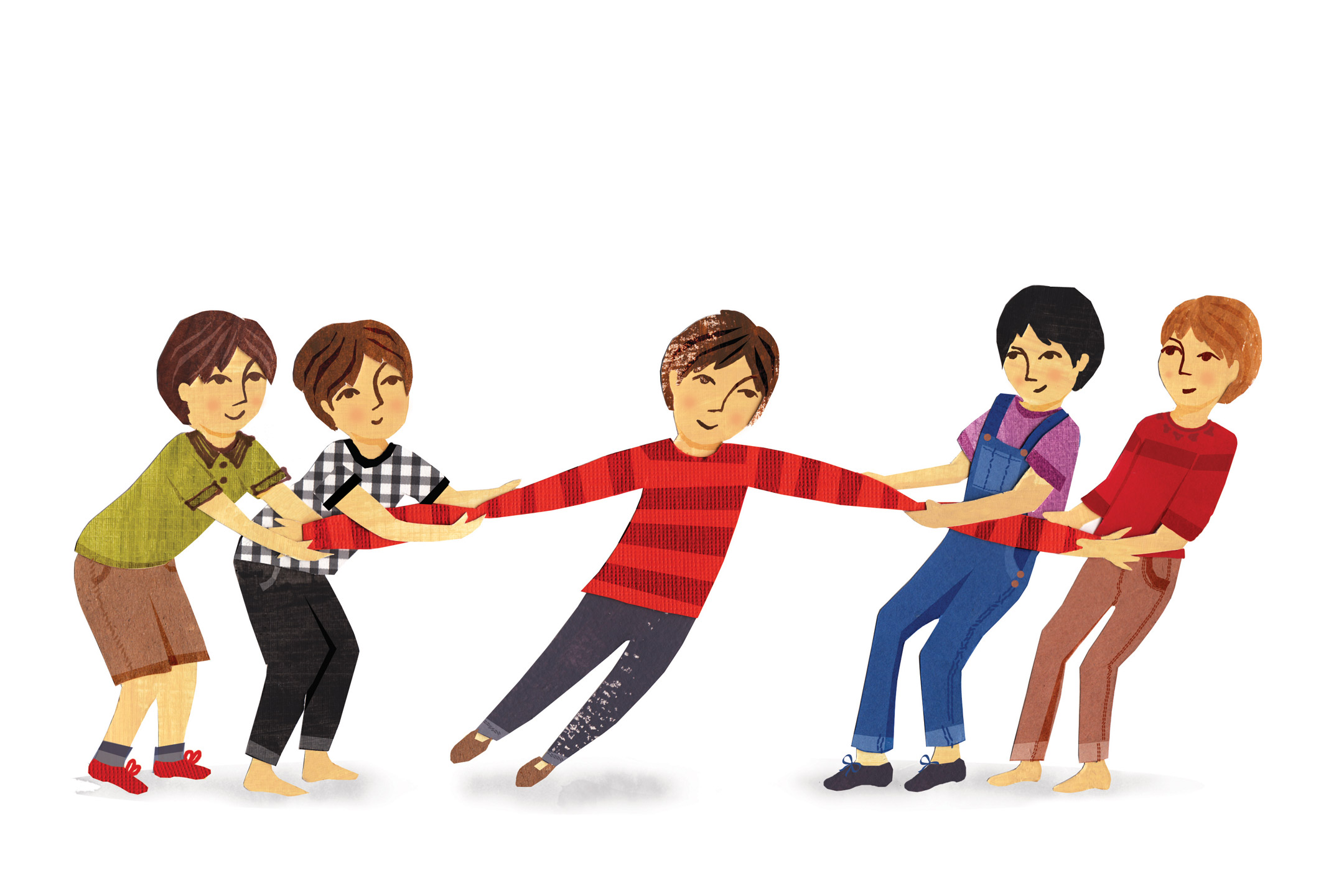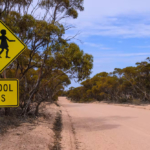
13 Oct Enterprise Bargaining
Sheree Gleeson observes her sons and their friends as they negotiate their alliances.
With four boys between us, the bond between my closest friend and I sometimes gets a robust work-out. Last week, Abby phoned. “I’m sending your two home and Finn to his bedroom,” she said. “Max said the others have been leaving him out. It’s probably just a phase they’re going through, but I don’t think we should let it develop.”
I made noises of agreement and met Mason and Elijah on the front steps. A jumbled tale emerged of insults, counter-insults, and a banana picked from a laden tree by one boy, but craftily scooped up and half-eaten by another before the first could shimmy back down to earth. Battlelines were drawn, paybacks planned and alliances formed, broken and re-formed.
“Well, if you can’t play together without hurting each other’s feelings, you might not be able to play at all,” I said, hoping this pseudo-wisdom would disguise the fact that, as a mother who can follow the almost entirely non-linear labyrinth of their reasoning and briskly ‘get to the bottom of things,’ my success rate nudged zero.
All seemed forgiven, mercifully, when the four reunited the next morning to work on the phenomenon they referred to as The Business.
The Business involved the boys dividing themselves into two companies, taking possession of my mango, avocado and macadamia trees, then selling the fruits and nuts back to me at fiercely negotiated prices. There was also a steep mark-up for cracking the macadamias open with a hammer shamelessly purloined from my husband’s locked (ha!) garage.
I poked around in the garden while they ‘worked’, enjoying the bustle of their industry. By mid-morning, mergers between the companies had been discussed and heatedly rejected, and the potential to increase their asset base was shrewdly identified by Finn and Elijah.
“If we bought their mango tree…” Whose mango tree, I wanted to ask. “We’d have less money now, but more money later.”
I rolled my eyes at the gravity of their expressions, convinced they would start tapping the sides of their noses and exchanging canny leers any second. But I was pleased with their fledgling understanding of the potential for capital growth versus the addictive delights of instant cash flow.
Finn and Elijah prepared a proposal for the other company, but before the merits of the deal could be fully explored there was an eruption of internal corporate rancour.
“Sure, you put vision into The Business,” said Finn. “What you don’t put in is time.” Max’s and Mason’s heads swivelled to attention, a-quiver at the delicious implications of trouble brewing in the Finn-Elijah alliance. “That’s true, Elijah,” said Mason – a treacherous intervention given that (1) Mason was a member of the other company, and therefore clearly devoid of voting rights in Elijah and Finn’s, and (2) He is Elijah’s brother. “Finn watered the trees on Monday, and all you did was scare away a few birds.”
I tensed, feeling uneasy at the group mentality swirling in the air. “I don’t know if we can let you be a part of The Business any more,” said Finn, shaking his head in a parody of deep regret. “Sorry Elijah.”
Elijah went into a nine year old’s meltdown, rushing inside the house in a fury of indignation and despair. “I do put time into the business,” he said. “You’re all just kicking me out for no reason.”
The spirit of Avenging Mother rose in my chest, and I wondered darkly which one of Mason’s, Finn’s and Max’s favourite toys I could destroy. Then Elijah emerged on the second-storey verandah. “I’m going to water the tree two days next week,” he said, his voice full of tremulous hope. “I don’t think it’s fair, kicking me out of The Business. I want another chance.”
Finn, Max and Mason called a huddle to consider this surprising new development. I fought the urge to direct them, remembering the role play that had absorbed me as a child.
What I was really workshopping, of course, was my position on right and wrong, fair and unfair, action and consequence. I wondered if the roller-coaster dynamic of the boys’ friendships, rather than being characterised by mild bullying as I sometimes feared, was actually transporting them to a greater hold on resilience. If their role play sometimes made them feel sad or left out, but let them grapple with complex issues and stumble towards resolution with friendships still intact, then halting the process would be short-changing them. The issues they were exploring were ones they were almost certain to face outside the relative forgiveness and elasticity of childhood friendships, and the ability to practise working through them suddenly seemed important.
Still, I yearned to be a mother in the era when kids disappeared over the fence and into the bush from dawn to dusk, emerging scuffed and tired after all the shoulder barging and jockeying for position; done and dusted without parental observation, intervention or angst complicating the process.
“Okay,” said Finn, breaking away from the huddle and nodding decisively up at Elijah. “We’ll give you another chance, Elijah. In fact, if you break into your Dad’s garage and get the watering can, we’ll give you two more chances…”
Illustrations by Andrea Smith




